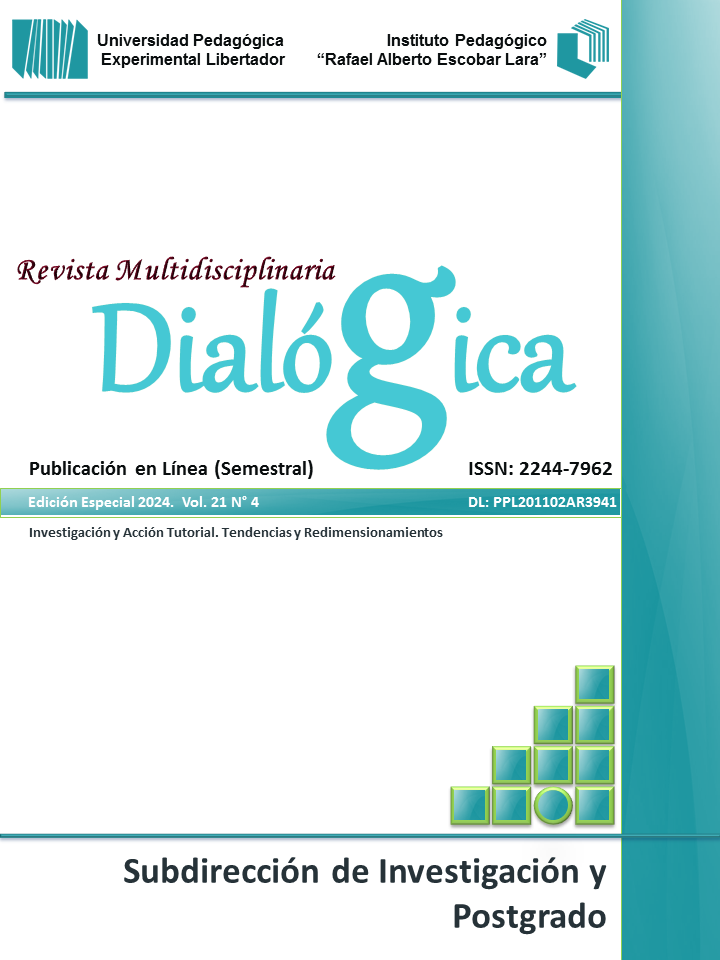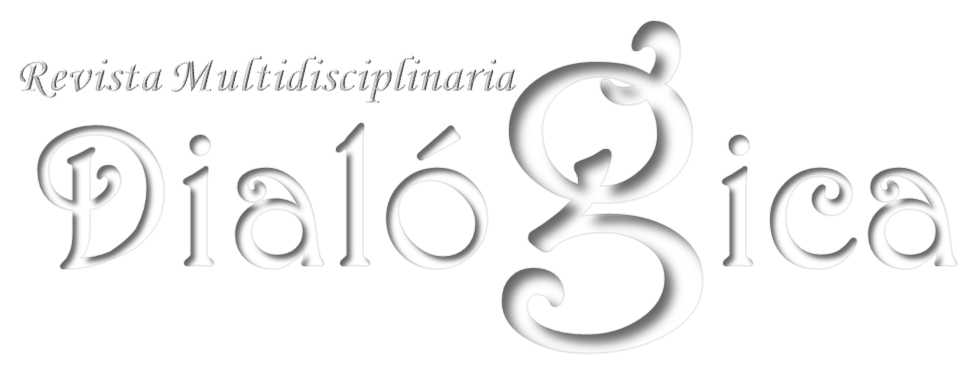CONNECTIVISM IN THE TUTORIAL RELATIONSHIP
DOI:
https://doi.org/10.56219/dialgica.v21i4.3315Keywords:
Connectivism, tutorial relationship, digital age, networksAbstract
The current world scenario is characterized by constant and accelerated changes. The emergence of communication and information technologies and connectivity through the Internet has influenced new forms and roles of interaction, where the technological medium itself imposes innovative frameworks of contact with others. In this sense, the tutorial relationship is based on an individualized and personified learning agreement of guidance for the development of investigative skills. Hence, the article reflected on connectivism in the tutorial relationship. It was developed through research based on documentary sources and the hermeneutic method was used. It is concluded that, in academic communities, it is necessary to promote and strengthen research work based on connectivism, given the changes in the forms of communication and the way of valuing learning as a process of creating and managing networks.
References
Downes, S. (2007). What connectivism is half an hour. https//halfanhour.blogspot.ro/2007/02/whatconnectivism.html.
Foroughi, A.; Yan, G.; Shi, H. y Chong, Z. (2015). Web 3.0 ontology based on similarity: a steptoward facilit ating learning in the big data age. Journal of Management Analytics, 2(3). 216-232. https://www.tandfonline.com/doi/abs/10.1080/23270012.2015.1067154 DOI: https://doi.org/10.1080/23270012.2015.1067154
García Aretio, L. (2009). ¿Por qué va ganando la educación a distancia? UNED.
Lasso, E. Munévar, P. y Rivera, A. (s/f). La acción tutorial en la educación virtual. UNAD. https://recursos.educoas.org/sites/default/files/VE14.267.pdf
Perea, C. D. (2006). El trabajo en red como fuente de aprendizaje: posibilidades y límites para la creación de conocimiento. Una visión crítica. Educar, 37, 11-24.
Siemens, G. (2004). A learning theory for the digital age. http://www.elearnspace.org/Articles/connectivism.htm.
Siemens, G. (2006). Conectivism: learning and knowledge today. http://www.educationau.edu.au/jahia/webdav/site/myjahiasite/shared/globalsummit/gs2006_siemens.pdf.
Vieira, E. F. (2006). A Sociedade cibernética. Cadernos EBAPE.BR, 4(2), 1 a 10. https://doi.org/10.1590/S1679-39512006000200008. DOI: https://doi.org/10.1590/S1679-39512006000200008
Downloads
Published
How to Cite
Issue
Section
License
Copyright (c) 2024 Ninoska Beatriz Flores Montenegro

This work is licensed under a Creative Commons Attribution-NonCommercial-ShareAlike 4.0 International License.


 @revistadialogica
@revistadialogica DialogicaUPEL
DialogicaUPEL RevistaDialogicaUPELMaracay
RevistaDialogicaUPELMaracay dialógicaupel@gmail.com
dialógicaupel@gmail.com dialogicaupel.blogspot.com
dialogicaupel.blogspot.com https://issuu.com/dialogicaupel
https://issuu.com/dialogicaupel https://revistas.upel.edu.ve/index.php/dialogica/
https://revistas.upel.edu.ve/index.php/dialogica/









